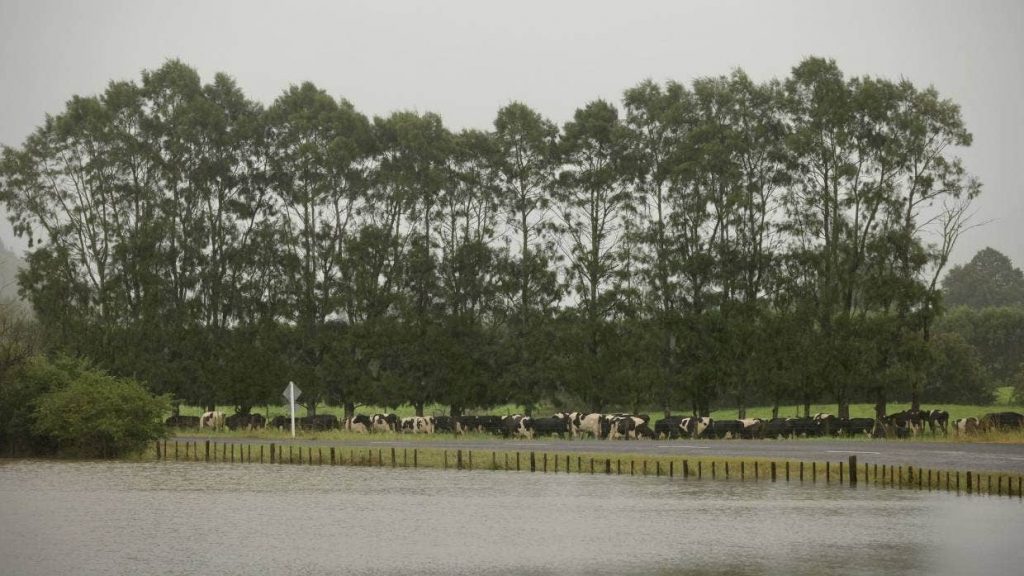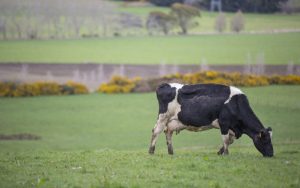
North King Country dairy farmer Nigel Simmons had a 30-hour power cut and had to dump milk.
Due to food safety and quality regulations milk can only be stored for certain periods, and cannot be collected if it becomes too warm.
In some areas of King Country farmers could not keep their milk cold, or milk tankers couldn’t pick up milk because flooding closed roads, he said.
“You put a lot of effort into getting the milk into the vat, so it can be collected, when you’re opening the tap and letting it run down the drain…our situation sucked, but it was pretty minute compared to others’ situation,” Simmons said.
Simmons said when the power went off his first worry was always the welfare of his cows. If cows were not milked they could develop mastitis.
Without power Simmons could also not pump drinking water to some of his paddocks.
Steve Cranefield, president of the Society of Dairy Cattle Veterinarians, said when there was flooding, the possibility of infection increased because cows standing in floodwater were “in a soup of bacteria”.
The longer the cows were not milked the more the risk of infection increased, he said.
Simmons said it was the first time in 30 years of farming that he had this amount of damage and disruption on his farm.
He had insurance to cover his losses, and like many other farmers considered buying a generator for future events to future-proof the farm.
A generator was a considerable investment and would only be needed once or twice a year, he said.
A spokesperson from Fonterra said if milk collection was disrupted the co-operative would give farmers as much advance warning as possible.
“When we have been unable to collect milk during the necessary window for food safety, we have issued farmers with instructions to dispose of their milk,” the spokesperson said.
There were resources farmers could access for advice, the spokesperson said.
It was too early to determine the full impact of the cyclone on milk collection, the spokesperson said.
Federated Farmers provincial president for mid-Canterbury David Acland farmed in an area that was “slammed” by a flood three years ago.
In future many farms and businesses would ask what level of back-up they would need, because it was evident power networks were vulnerable, Acland said.
Because much of Canterbury was new to dairying the infrastructure was newer than many North Island farms, this saved them from severe weather events, Acland said.
Dairy sheds had generators and houses had gas or wood for heating, as a “work around” when there were power outages, he said.
“With climate volatility we have to reassess vulnerability to water, wind or snow,” he said.























